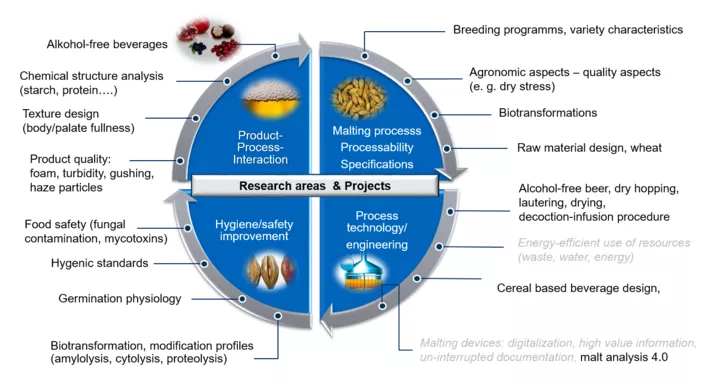Group leader: Dr.-Ing. Martina Gastl
The key areas are the design of raw materials, cultivation and process/product interactions. This includes multiple cereals and pseudo-cereals, hops and If necessary auxiliary materials. New breedings of different cereals and pseudo-cereals are evaluated with regard on their malting properties, evaluation of their suitability and the optimization of the processing for beverage production respectively. The information gathered is used to define demands set to a future oriented raw material design. The focus of this research is set onto barley used for brewing. The fundamental research is therefore focused on the chemical, physical, functional and quality-relevant properties of the raw material ingredients (starch, proteins, polyphenols) and their conversion/alteration during the malting process and the beverage production. The goal is to determine the functional and quality-influencing properties with regard to the beverage properties (richness, turbidity stability, taste stability, microbial properties, foam stability, etc.).
